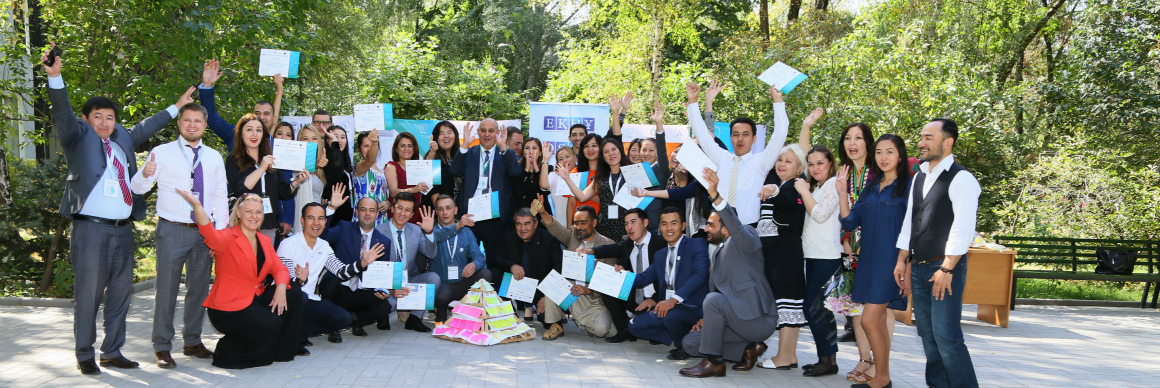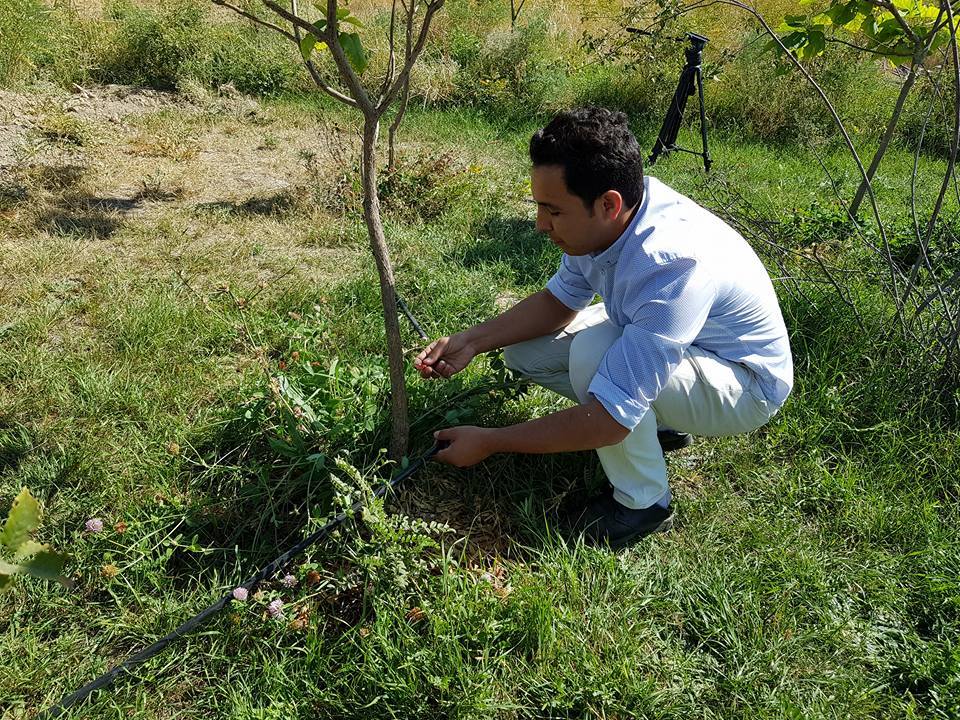32 new graduates of CALP
September 19, Almaty, the Central Asian Leadership Programme on Environment for Sustainable Development is finished. 32 participants from Afghanistan, Kazakhstan, Kyrgyzstan, Tajikistan, Turkmenistan and Uzbekistan received certificates of successful graduation.

This year, CALP focused on the interrelation between water and energy resources, as well as on the importance of regional cooperation in promoting green economy on the occasion of the EXPO-2017. The programme included sessions on adaptation to climate change, consideration of the role of business in environmental protection, discussions on academic publications, water issues, implementation of conventions. In addition to a wide range of topics, CALP is distinguished by its interdepartmental and intersectoral core nature. There are young representatives of government bodies, NGOs and media from six countries in the region.
For example, Umedakhon Fazylova from Tajikistan presented NGO’s sector: "I like that the programme covered a lot of issues, and they are interrelated. It's interesting to hear the information from the other perspective."
In turn, Nargiza Osmonova, as a representative of state structure, noted: "It was interesting for me to know what is happening in other countries: what programs and projects exist and how they are implemented. This information will already complement my work." Nargiza works in the Department of Water Resources and Melioration under the Ministry of Agriculture and Melioration of the Kyrgyz Republic. At the same time Victoria Rzaeva, a participant from Uzbekistan, presented a media sector on the program and concluded: "The level of lecturers is very high - they are themselves direct participants in the projects they are talking about.
To enhance the interaction between the participants, the invited facilitators included active workouts and exercises into the programme, which allowed building a team. The latter passed through conversations with Dominic Stucker also. He is a coach for collective leadership.
"We must, first of all, understand how we see an issue. If you see the full picture of another person, too, you will have a vision of where you should go. It is always worth remembering that people can find many different ways to get to the same point," Stucker concluded one of his lectures.
Moreover, within the framework of CALP, the participants visited the ecological settlement "Almaray", where they got acquainted with environmentally friendly methods of construction, and built a drip irrigation system on the spot.

CALP is a unique regular programme on environmental protection and sustainable development in Central Asia for governments, the academic and private sector and NGOs. To date, more than 200 graduates work in various fields throughout the region. The main objective is to demonstrate, in the course of active discussions benefits of regional cooperation, thereby developing the potential of young leaders of Central Asia and Afghanistan.
To learn more about our graduates here.
WE ARE SUPPORTED
In 2017, CALP was held in cooperation with the United Nations Environment Program with the support of the Government of Norway, the OSCE Programs Office in Astana, the European Union, USAID and the World Bank.
